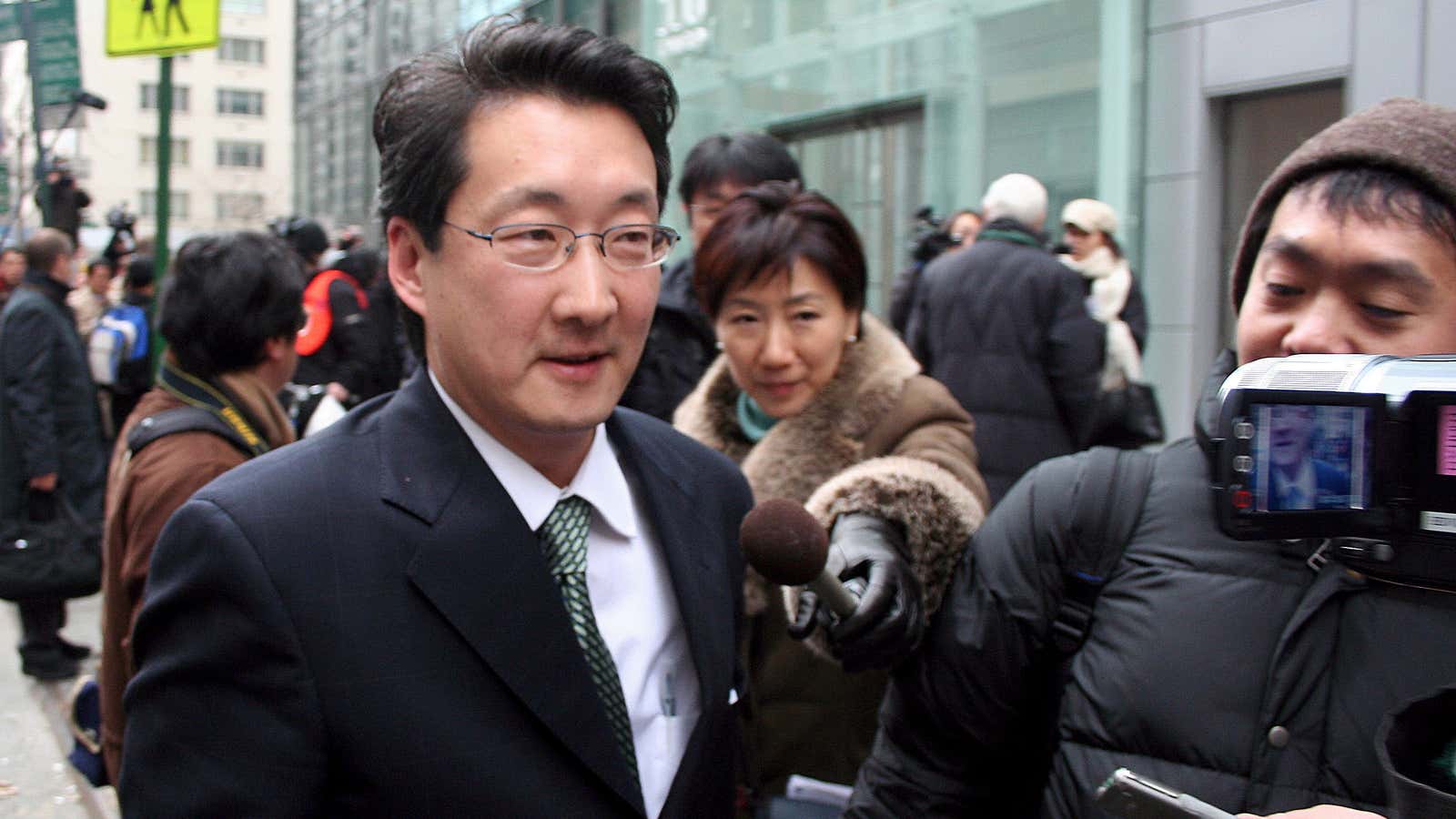When news broke last August that Donald Trump was likely to make Victor Cha the next US ambassador to South Korea, many North Korea experts applauded the expected move. The knowledgable Cha, a Georgetown University professor and previously George W. Bush’s top North Korea representative, seemed the perfect choice amid rapidly escalating tensions on the Korean peninsula.
Five months later, he’s out of the running.
The White House announced Tuesday (Jan. 30) that Cha is no longer being considered for the post. The problem? Cha disagreed with (paywall) the Trump administration’s North Korea policy.
Cha told team Trump he disliked the idea of a limited strike on North Korea—the “bloody nose strategy“—as a way of sending a message to the regime of Kim Jong-un. As he writes in an opinion piece in the Washington Post (paywall), ”the answer is not, as some Trump administration officials have suggested, a preventive military strike.” He continues:
But a strike (even a large one) would only delay North Korea’s missile-building and nuclear programs, which are buried in deep, unknown places impenetrable to bunker-busting bombs. A strike also would not stem the threat of proliferation but rather exacerbate it, turning what might be a North Korean moneymaking endeavor into a vengeful effort intended to equip other bad actors against us.
Korea experts saw his column as an indication of how close the idea of preventive strikes has come to reality within the Trump administration.
Others found evidence of that risk in the State of the Union speech Trump delivered Tuesday night, with parts of it sounding like a case for military action against North Korea. Vox drew parallels between Trump’s address and the one given in 2002 by then-president Bush ahead of the Iraq War. Both speeches included detailed descriptions of the ruling regime’s atrocities accompanied by suggestions that the US homeland could be next.
But Cha is hardly a softie. In his opinion piece, he suggests the US tighten the sanctions against North Korea, bolster its military cooperation with Japan and South Korea, build a “maritime coalition” to intercept ships carrying weapons technology, and continue preparing for military options.
A limited strike, he notes, could also escalate into a much bigger war and put the US population in Japan and South Korea—equivalent to that of a midsize city like Pittsburgh, Pennyslvania—at risk, along with a far greater number of citizens of those allied nations.
Now, South Koreans and others who were reassured by Cha being the expected ambassador have to worry about who Trump will select.
Chances are good it will be someone less willing to disagree with Trump.
